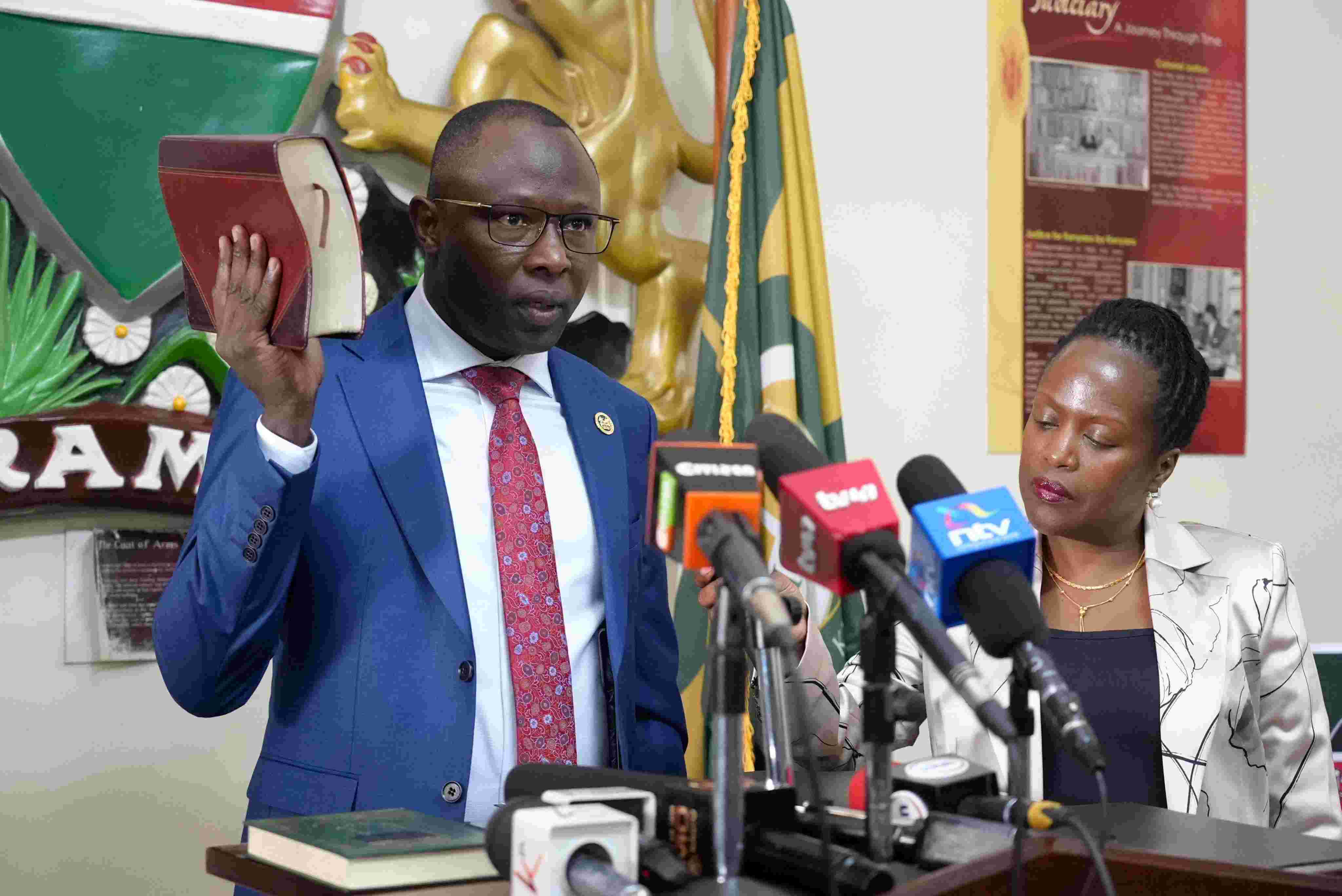IEBC says it has received four petitions to recall sitting MPs

The recall process begins when a voter from the affected constituency writes to the IEBC with a detailed explanation of the reasons for seeking the recall. If the Commission approves the request, the applicant will be issued a recall petition form within 14 days.
The electoral commission has said that it has received four petitions to recall sitting MPs.
IEBC Chairperson Erastus Edung Ethekon on Thursday said Kenyans are actively discussing the matter, and the Commission is aware of the growing public interest in the recall process. However, he made it clear that they are yet to review the petitions.
More To Read
- LSK condemns violence in by-elections, warns of gaps ahead of 2027 polls
- ELOG flags electoral violence, ballot secrecy breaches in November 27 by-elections
- Political storm erupts as Jubilee, DAP-K accuse rivals of orchestrated violence in by-elections
- Tension as rival camps clash in Mbeere North polls
- IEBC urges Ugunja residents to vote as early turnout remains low
- MP Kaluma injured as bodyguard loses gun in Kasipul poll chaos
“I mean, Kenyans are actively discussing this subject of recall. So we currently have roughly four. We will look at them when we go back to the office,” Ethekon told reporters.
“Going forward, of course, it’s the right of every Kenyan to exercise that right of recall under the Constitution.”
He said the Commission would follow the law once valid recall petitions are submitted. “As IEBC, we will be there to do what the law allows us. We will receive those petitions, we will examine them, and then we will, of course, respond to them,” he said.
According to Article 104 of the Constitution, Kenyans have the right to recall their MPs. Section 45 of the Elections Act further outlines the grounds on which a lawmaker can be recalled. These include violations of Chapter Six of the Constitution on integrity, conviction for an offence under the Elections Act, or misuse of public resources such as constituency development funds.
The recall process begins when a voter from the affected constituency writes to the IEBC with a detailed explanation of the reasons for seeking the recall. If the Commission approves the request, the applicant will be issued a recall petition form within 14 days.
The petitioner then has 30 days to collect signatures from at least 30 per cent of registered voters in the constituency. Each signature must be accompanied by a name, ID number, and voter registration details.
Once submitted, the IEBC has 30 days to verify the signatures and confirm that they are valid and belong to voters in that constituency. If the petition is confirmed to be valid, the Commission will notify the Speaker of the National Assembly within 15 days and then organise a recall election within 90 days.
In a recall election, voters are asked to vote “yes” or “no” on whether their MP should be removed. If more than half of the voters say “yes,” the MP loses their seat and the IEBC must then conduct a by-election in that constituency.
A recall can only be initiated once per term for a given MP, and cannot be started within the first two years after an election or within the final 12 months of the parliamentary term. Those who unsuccessfully contested for the same seat in the last general election are also barred from initiating a recall.
Top Stories Today












































